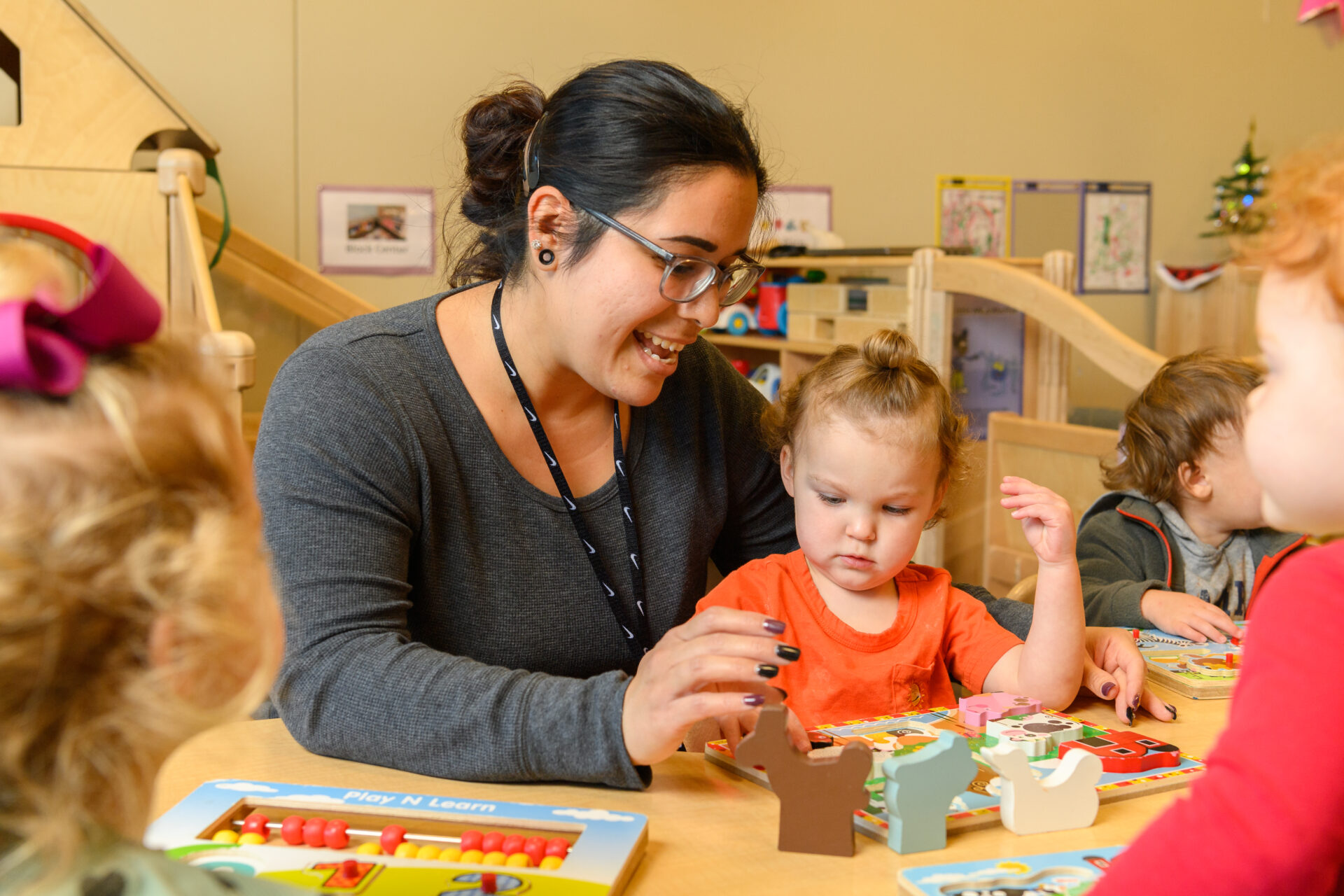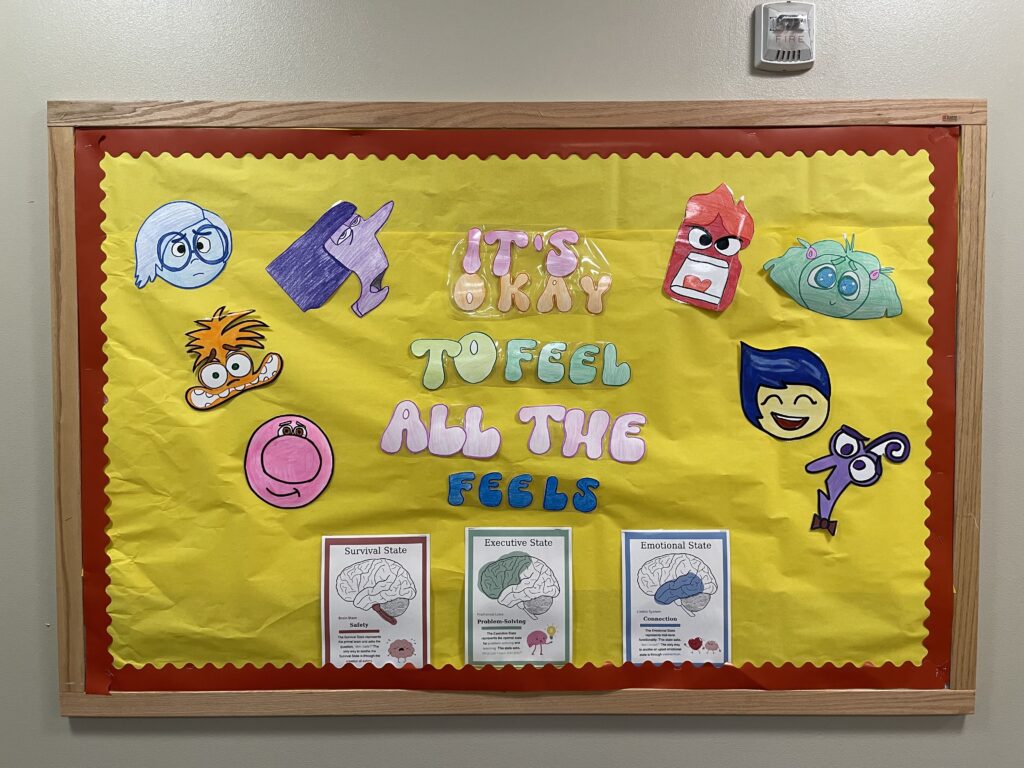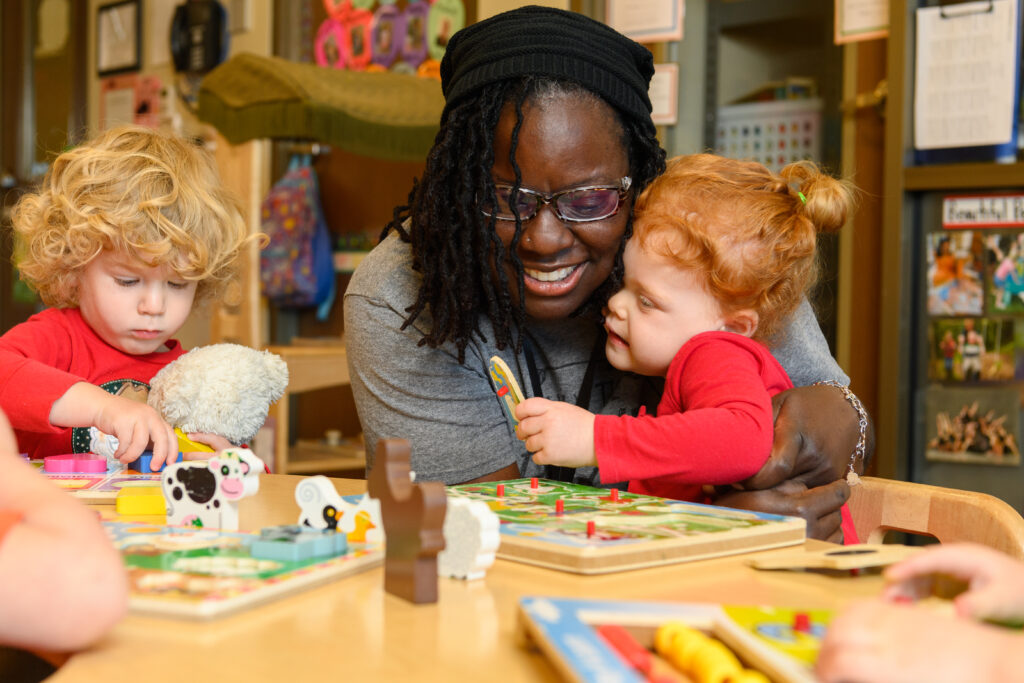
Self-care is an important aspect of mental health and healthy development in children. At Lena Pope, we believe there are several things that help children, families, and individuals care for their mental health, like regulating our emotions, access to nutritious food, and building connections with others. This month we talked with Robin Laney, Assistant Director of Early Learning Center – Sanguinet about how our staff implement these things at our two nationally accredited (NAEYC) Early Learning Centers.
Identifying and expressing emotions
“Social and emotional learning helps you learn how to regulate your body, gives you the skillset you need to navigate conflict, difficult situations, or relationships, and assists you in creating a positive learning environment,” said Robin. At Lena Pope, we utilize Conscious Discipline, a social emotional learning program, which talks about three brain states. The Red state is a survival state where you need safety and are often in a fight/flight/freeze response. The Blue state is an emotional state where you will see verbal reactions and you are seeking some kind of connection. The Green state is an executive state where you are calm, ready to learn, and can use all the executive functioning skills in your brain.
Pictured below: We have the brain states and emotions on display at our Early Learning Center.

“We know when a kid is in the red state, they can’t comprehend, learn, or even hear you. They’re in a survival mode so they don’t often understand what you are saying. But when a kid is in a green state they can learn and retain the information, which helps them academically because they feel safe in their environment,” shared Robin. “Learning how to navigate yourself from the red back to green is an important skill we want to teach children from a young age. We also help our parents and caregivers practice these skills of calming their bodies and expressing their emotions,” said Robin.
The skills of communicating our needs and being able to move ourselves from a frustrated or emotional state back to a calm state is part of caring for our mental health. “You cannot take a child, or another person, to a place of calm when you’re not calm. And what we’re trying to do is help others catch our calm,” encouraged Robin. Communicating needs is also a way to create connection with others, which is another important aspect of caring for our mental health. We all seek connection with others, from infancy to adulthood!
Nutrition as self care
Providing nutritious food is another aspect of caring for ourselves. At our Early Learning Centers, we provide breakfast, lunch, and snacks to all children as part of their daily care. The consistency of knowing food, water, and snacks will be available is an important aspect of helping kids learn. “Sometimes children don’t know their hunger or thirst cues and they’ll start to yell or become upset, so calming them down can be as simple as offering food or water. The texture of food can even help regulate a child. We offer food consistently every 2-3 hours each day,” shared Robin.
For adults, it’s important that we also provide nutritious food for ourselves on a regular schedule. Access to adequate nutrition allows our bodies and our brains to be in a calmer, more regulated state.

Creating connections
“When I was having trouble connecting with a child, a trainer encouraged me to spend 10-15 minutes each day with that child doing whatever activity the child chose. I would follow the child’s lead and let that time be open-ended and intentional. That routine and consistency was so helpful for that child, and for all children, because they knew they had some calm and some control,” shared Robin.
If you know a child is having a tough time, or you’re seeing some behaviors that are out of the ordinary, they might be seeking connection. Try to spend 10-15 minutes a day with them doing an activity led by the child. Reading together can be a great way to connect. It gives you time to sit close together, kids can reflect and recall what they’re learning, and you engage in conversation.
“Noticing is another skill in Conscious Discipline that we practice. The skill of noticing allows you to narrate what you’re seeing and notice the good you see in a child or another adult,” Robin said. We all appreciate when someone notices that we did the dishes, completed an important task, or took care of something. Kids like to hear that they’re being helpful, that they were kind to share with a friend, or how sweet they are when they give you an extra hug. As adults, it can feel silly to say the phrase “I noticed” but we say similar things when we are noticing, praising, and celebrating others in our lives. When we notice and praise others, that creates connection and moves us toward that green, calm brain state.
Emotions can feel big and overwhelming, especially for kids. Having an adult to help you navigate how to identify emotions, express your needs, and move yourself to a place of calm is vital for children. Caring for ourselves, and teaching children how to care for themselves, involves those social and emotional skills, an awareness of providing nutritious foods, and creating connections with others. We hope these tips help you care for yourself and teach the kids in your life how to do that as well.